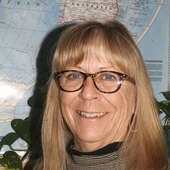- Research tips and McCook Brick Company- solid as a brick (12/16/24)
- Big Give appreciation and some railroad characters (11/15/24)
- George Randel becomes a landowner, gets married, and takes in a Buffalo Bill show (9/20/24)
- The memoirs of George F. Randel, early settler of Red Willow County (9/12/24)
- Vietnam War Memorial honors Nebraskans who served (6/13/24)
- McCook business promotions - just prior to 1893 stock market crash (5/30/24)
- Shall we dance? Meet you at the Gayway (12/8/23)
The humble beginnings of McCook
Friday, August 26, 2016

The apple butter is "in the books" as they say, seven gallons of apples, two days of cooking and a frantic push to get it all canned before Friday night turned into Saturday morning! Again, it is not my mother's apple butter but then how do you make something just like someone else does anyway?
I don't find that you can make a cake just like the cake your mother made 40 years ago. Even if you start out with the same ingredients written down on that little recipe card, it's not going to be the cake you remember, and that's OK because it is the cake you made. Love it or leave it on the plate!
Towns are cut from similar cloth. McCook came into existence nearly 135 years ago and it has morphed into what it is today. Main Street is Norris Avenue and the buildings and bricks on B Street are mostly gone, but the end result isn't bad, it's just the town we've made. Personally, even with the warts and scabs that exist from bad decisions in the past, I'm going to love it and unless the wind blows me out of town, I'm not going to leave it.
In 1886 McCook had a group named The Republican Valley Horse Breeders and Driving Association. Formed in 1885, its' constitutional objective was to "encourage and improve the breeding and speed of horses". (Ryan & Turners McCook Land District Directory: pg. 33, 1886) The association had purchased sixty acres on the southeastern McCook city limits. Fenced in, it boasted a "commodious ampitheatre", stock buildings, and a ½ Mile race track, etc., built at a cost of $ 2500.00 which was the full amount of paid in stock the association held.
These sixty acres were the site of the first annual Fair held in McCook on October 15th, 16th, and 17th in 1885 when the Red Willow County Agricultural society put the rights to hold the Fair up for bids and McCook outbid Indianola. According to the association, $3,000 in premiums was paid out during the fair. William Doyle (you might remember the name from a previous article where he donated the first school house building) of McCook was the President; Dr. Z. L. Kay of McCook and Judge H. B. Strant of Culbertson were Vice Presidents; Max Newman, Secretary; Honorable George Hocknell, Treasurer.
Before McCook had their Carnegie Library or any library at all, they had "circulating libraries." One could check out books for a small membership fee from either Dr. S. L. Green or M. A. Spalding's drug stores both on the west side of Main Avenue.
Early postal service, Mr. L. V. Kennedy Postmaster, was located in a sod house in South McCook and marked the original site of the Fairview settlement. (McCook's original name was Fairview.) When McCook came into existence, the post office was moved to the east side of Main Avenue near the corner of Dennison Street which is B Street today. (I don't know if was in 111 Norris Ave., but its' basement closet is full of U.S. Post Office mail bags.) By 1886, it had moved to the west side of Main Avenue between today's B and C Streets. Mr. A.P. Sharp, Postmaster at the time, petitioned to have the service raised from a class four to a class three office since receipts in 1885 were an impressive amount of $ 1,836.66.
Next week I'll cover some additional facts concerning McCook's infant days. This book as well as several other reference books are available at our SWNGS library, 110 West C, Suite M-3, which is open on Tuesday, Thursday, and the first and third Saturdays of each month, 1:30 to 4 p.m.

